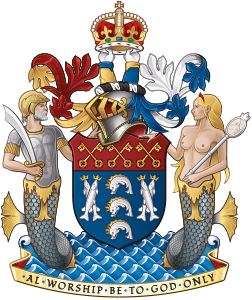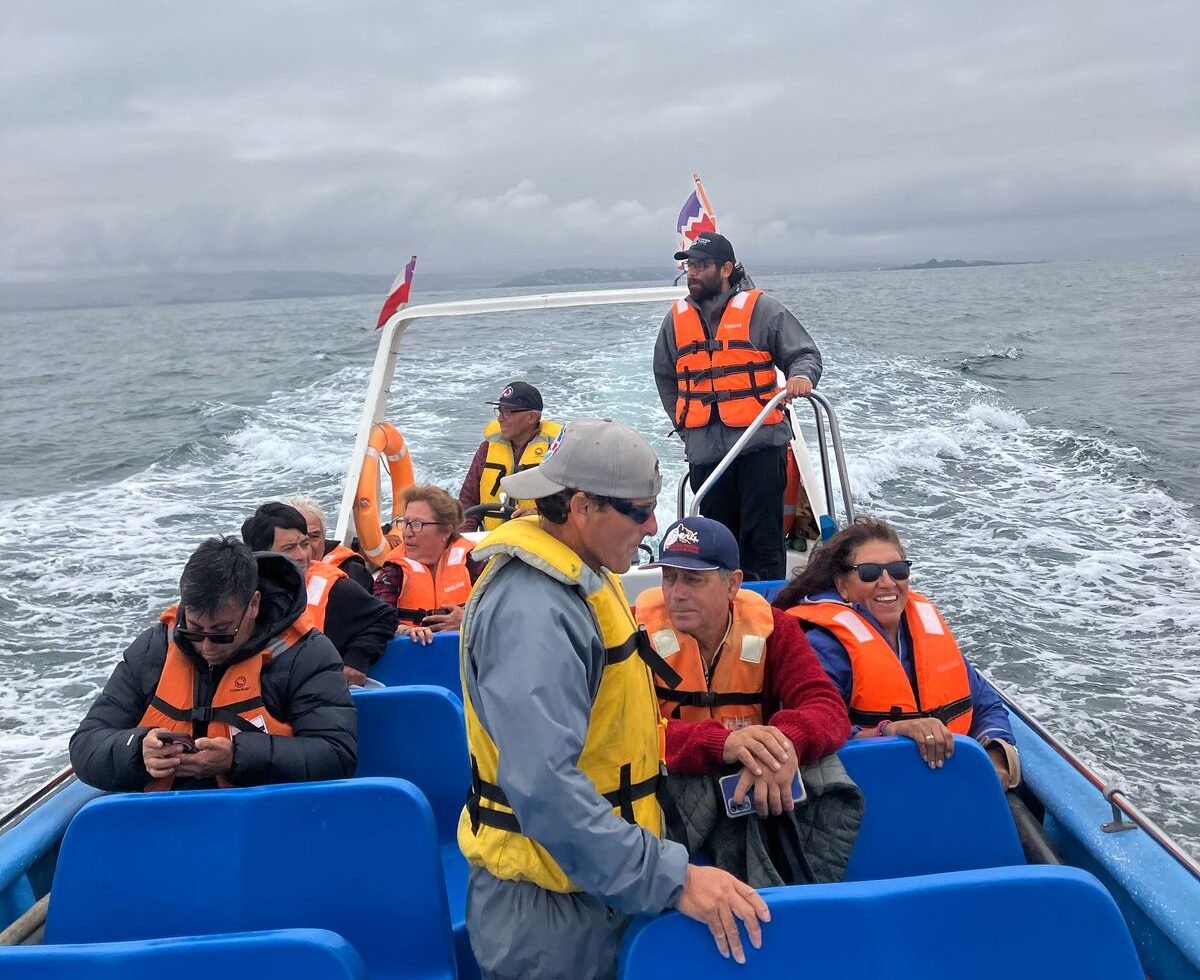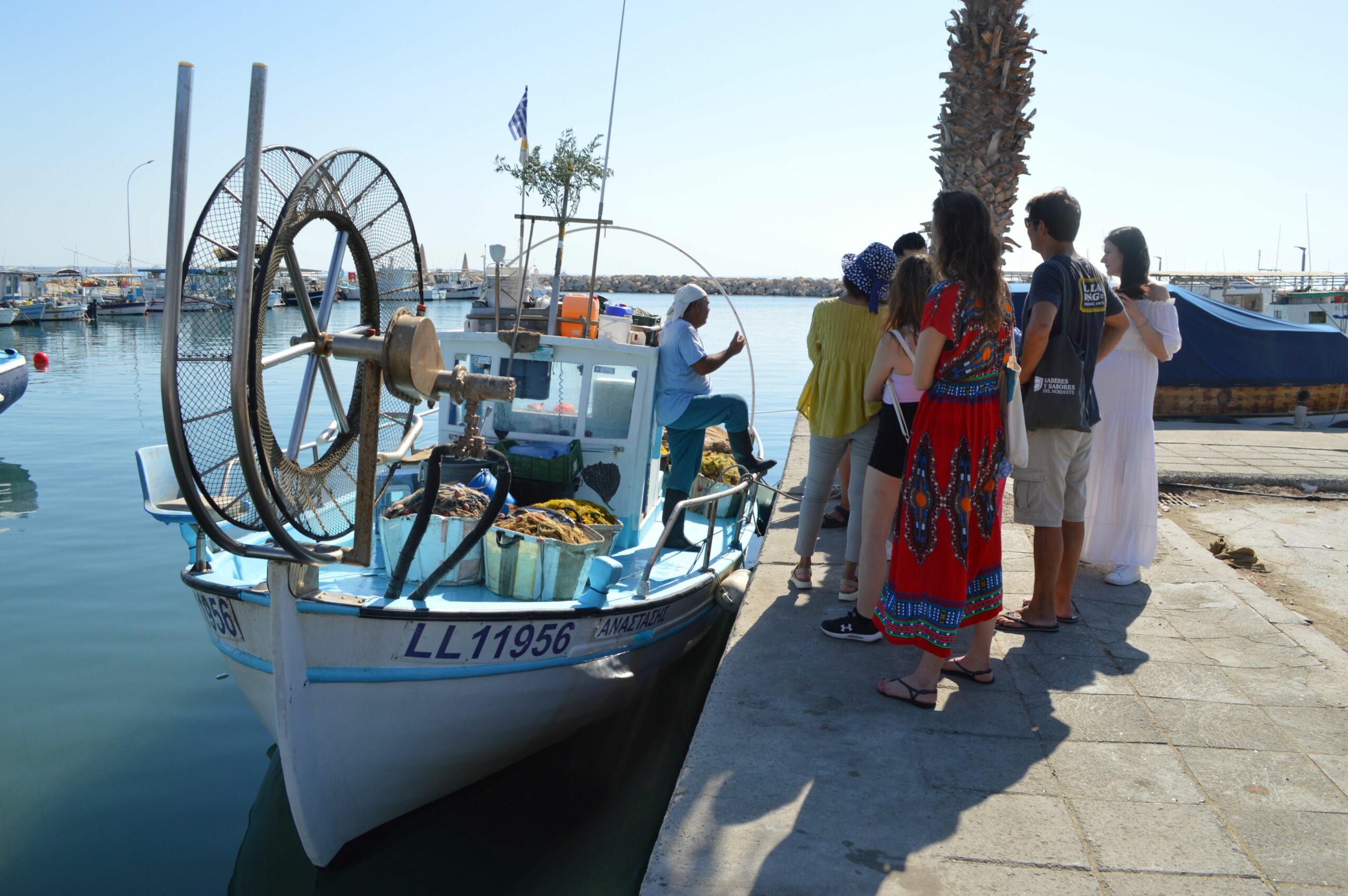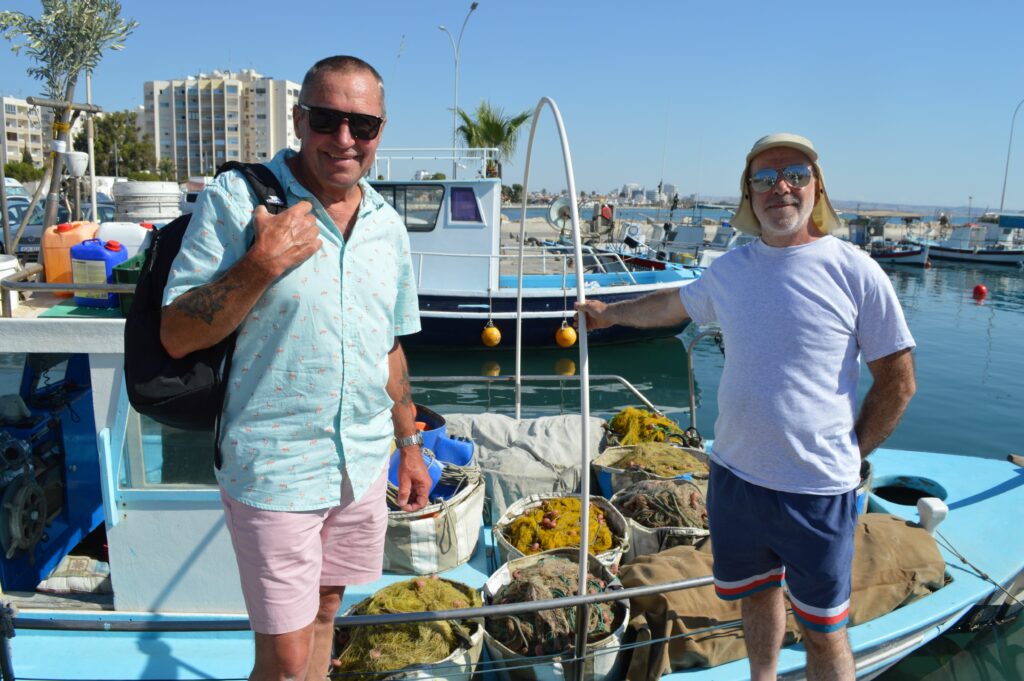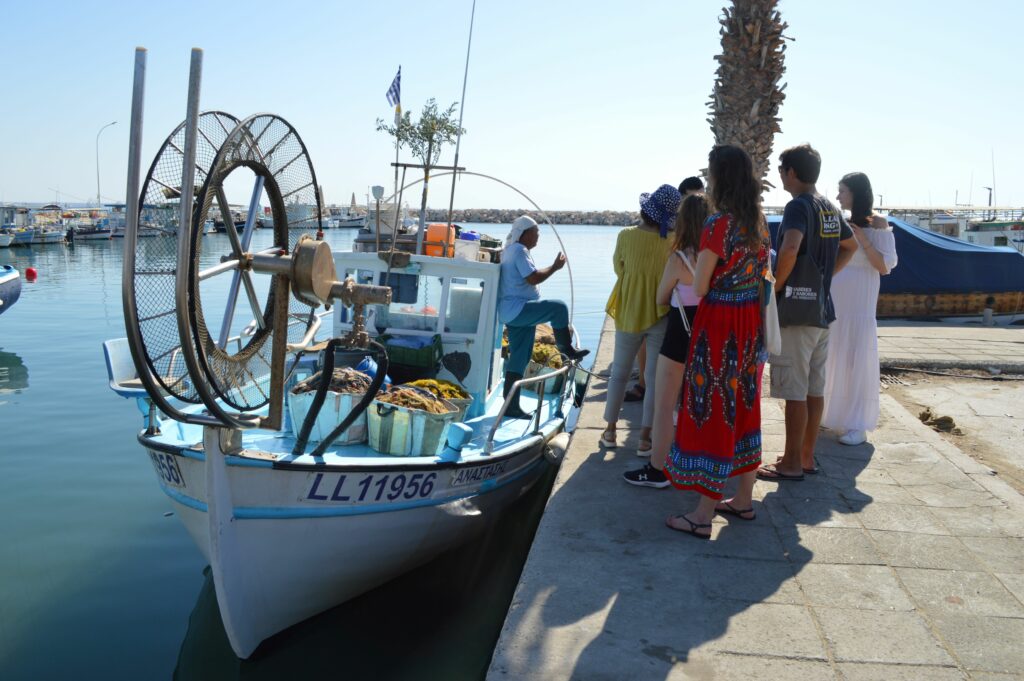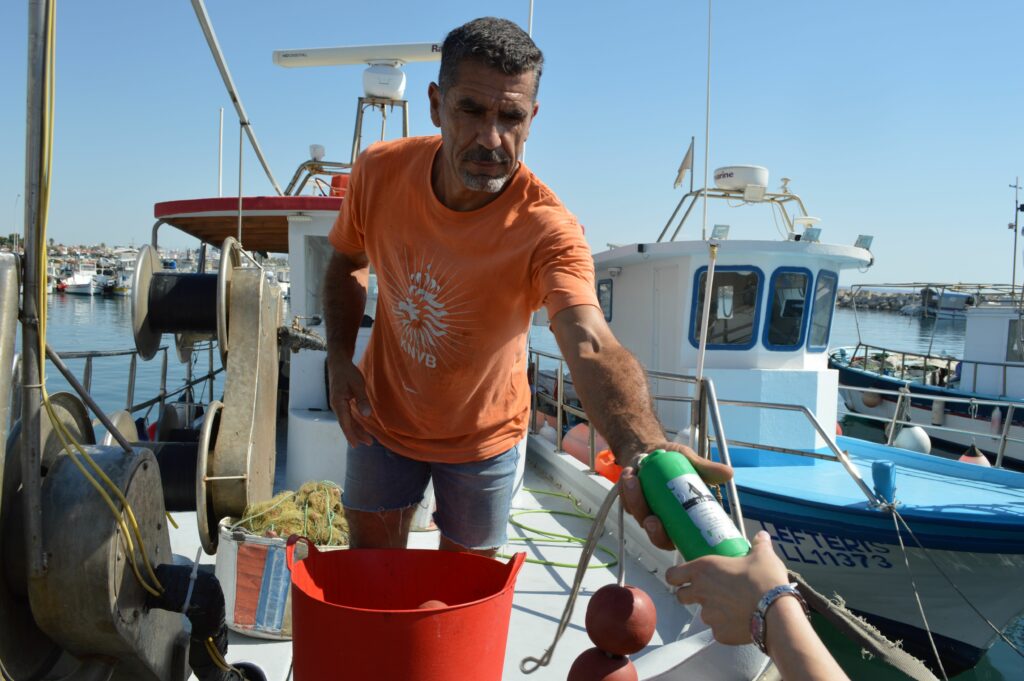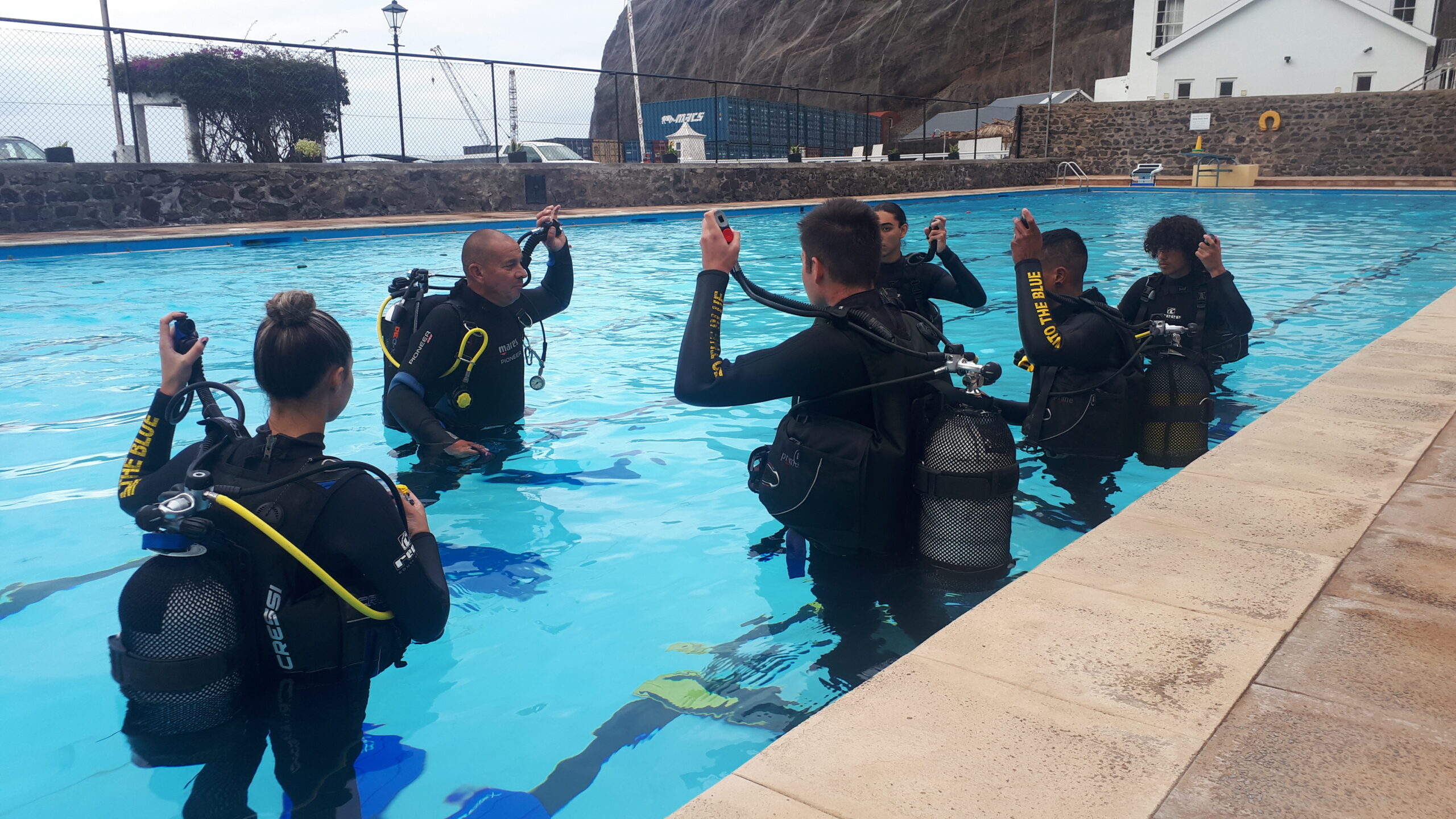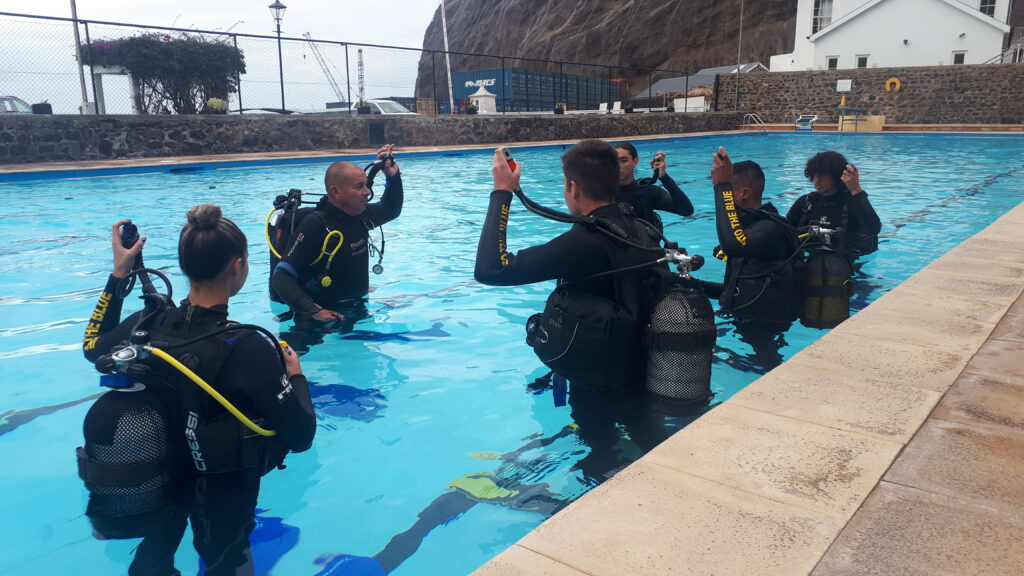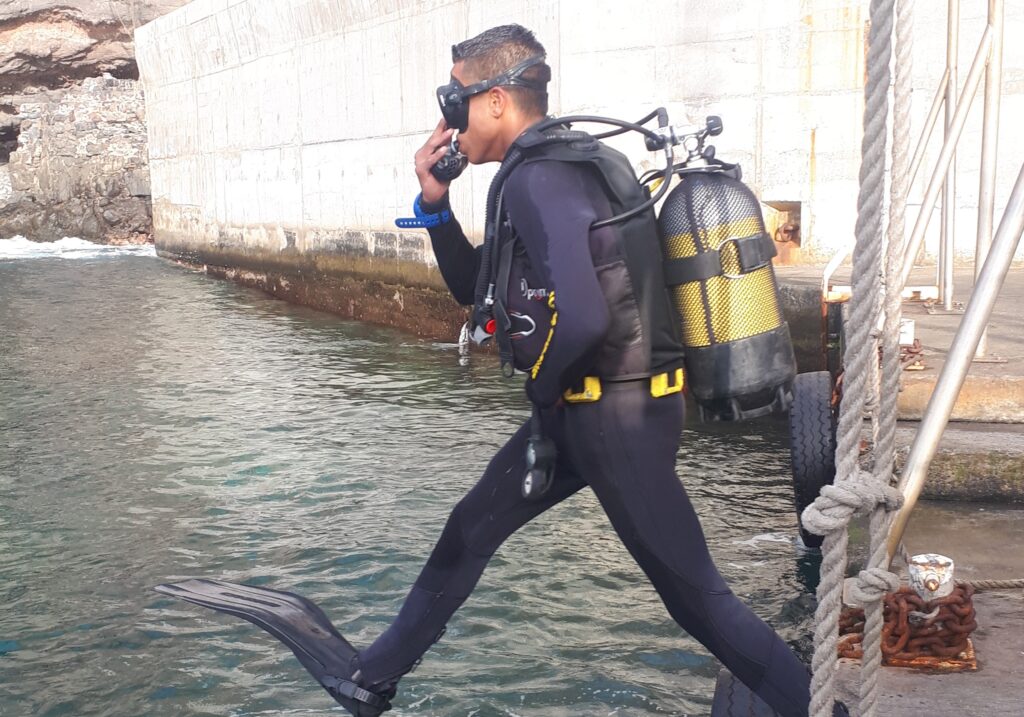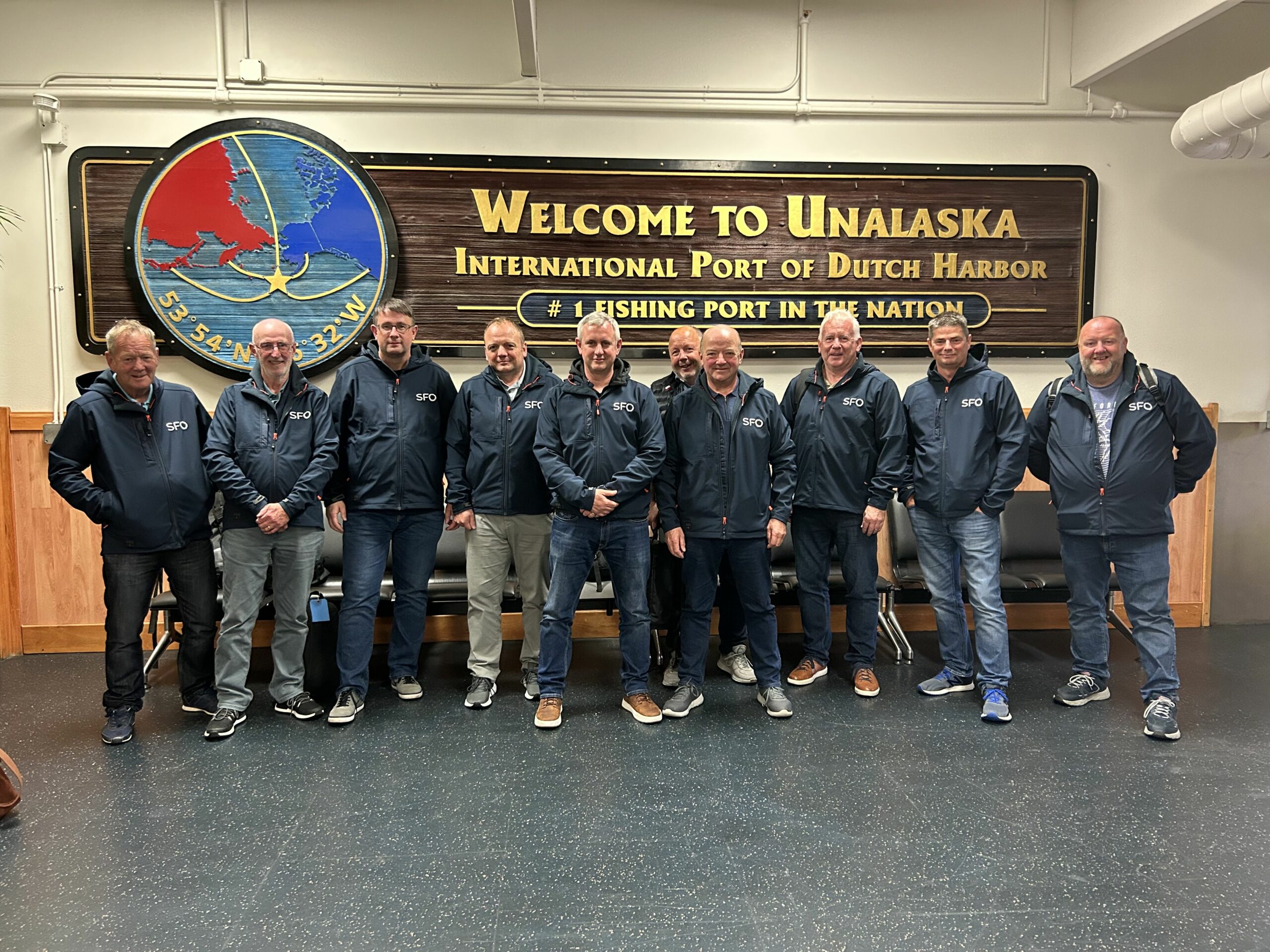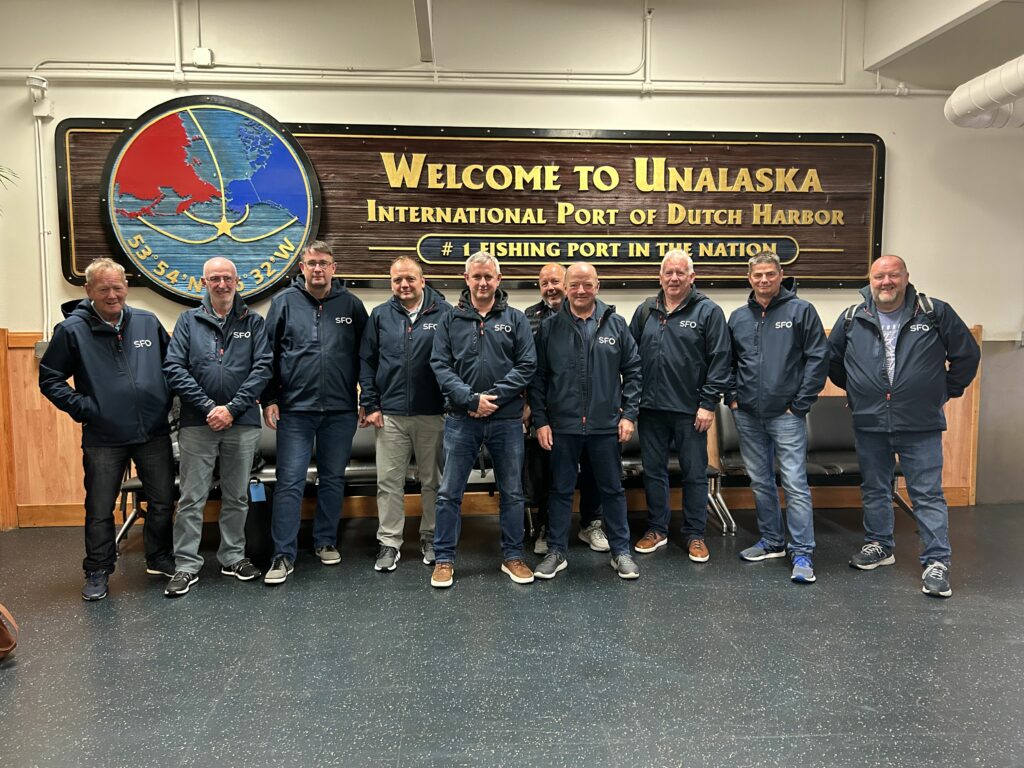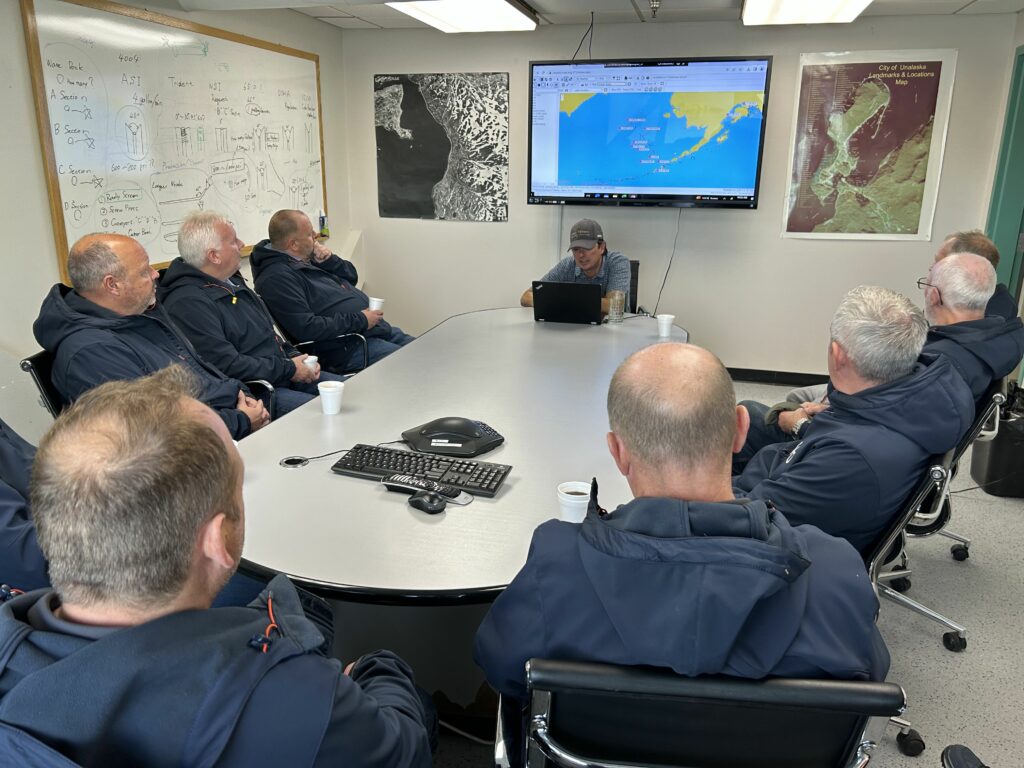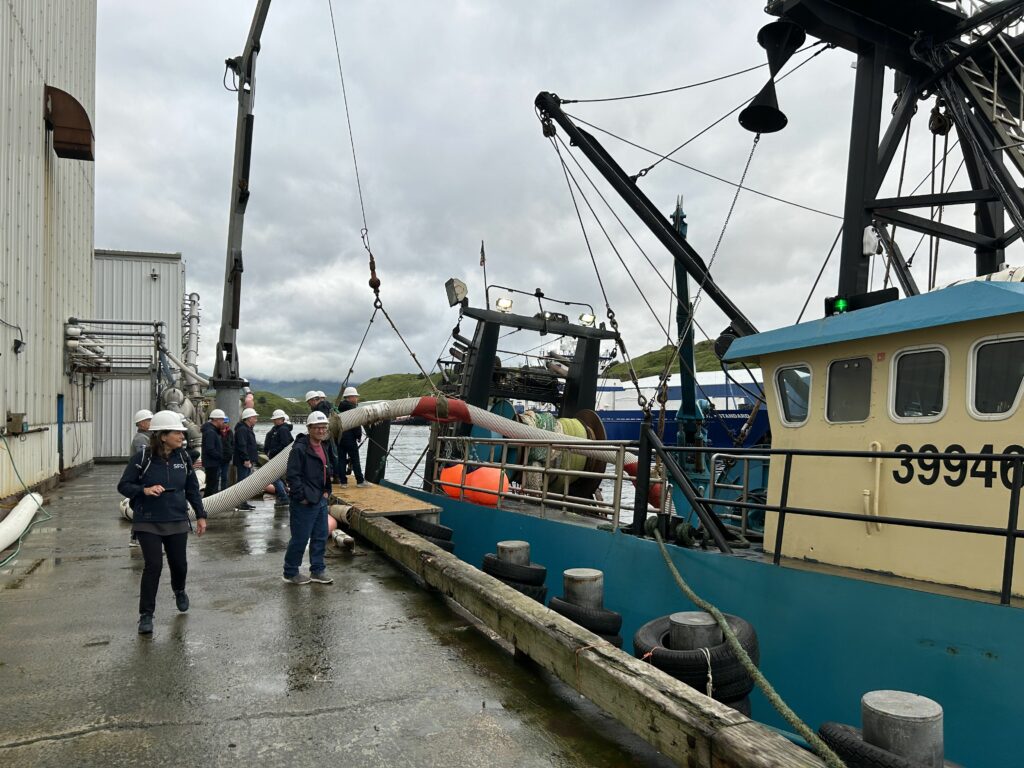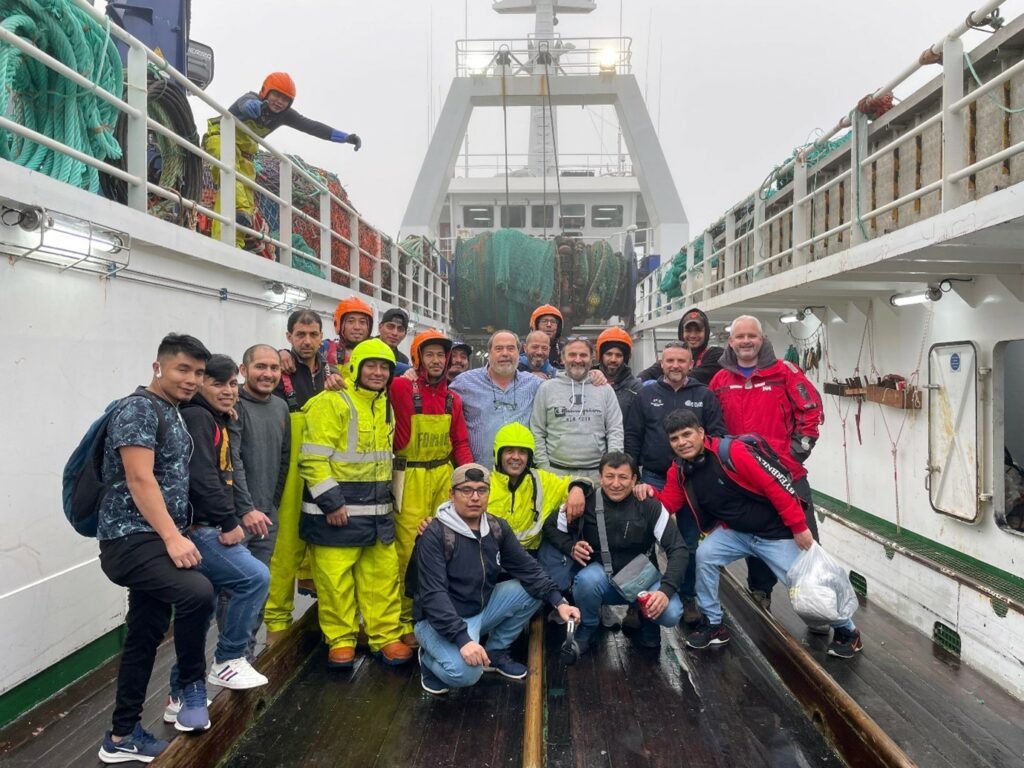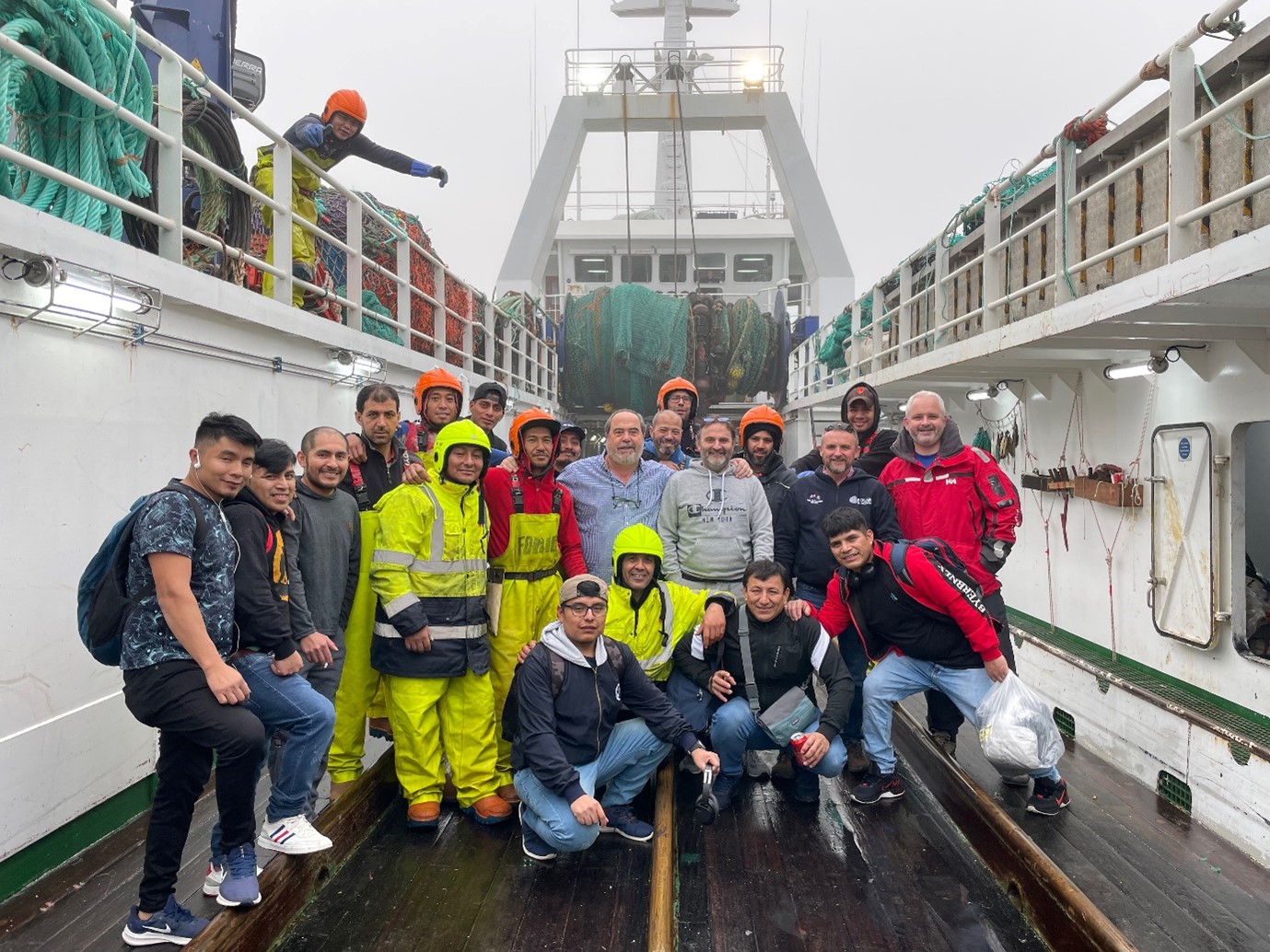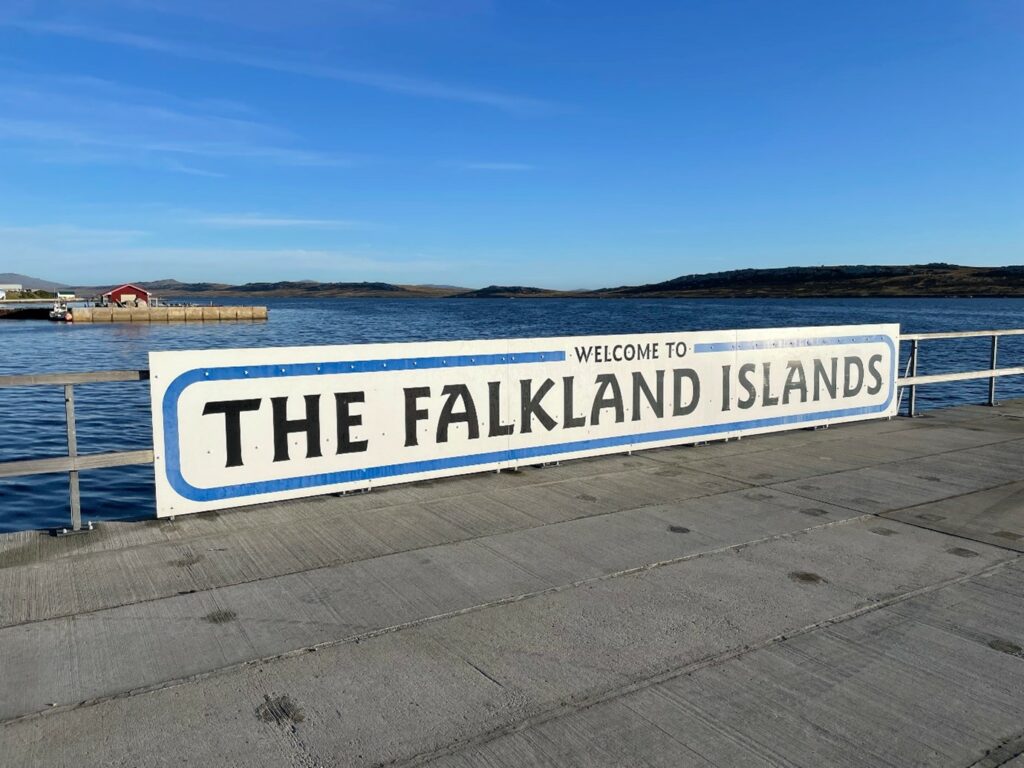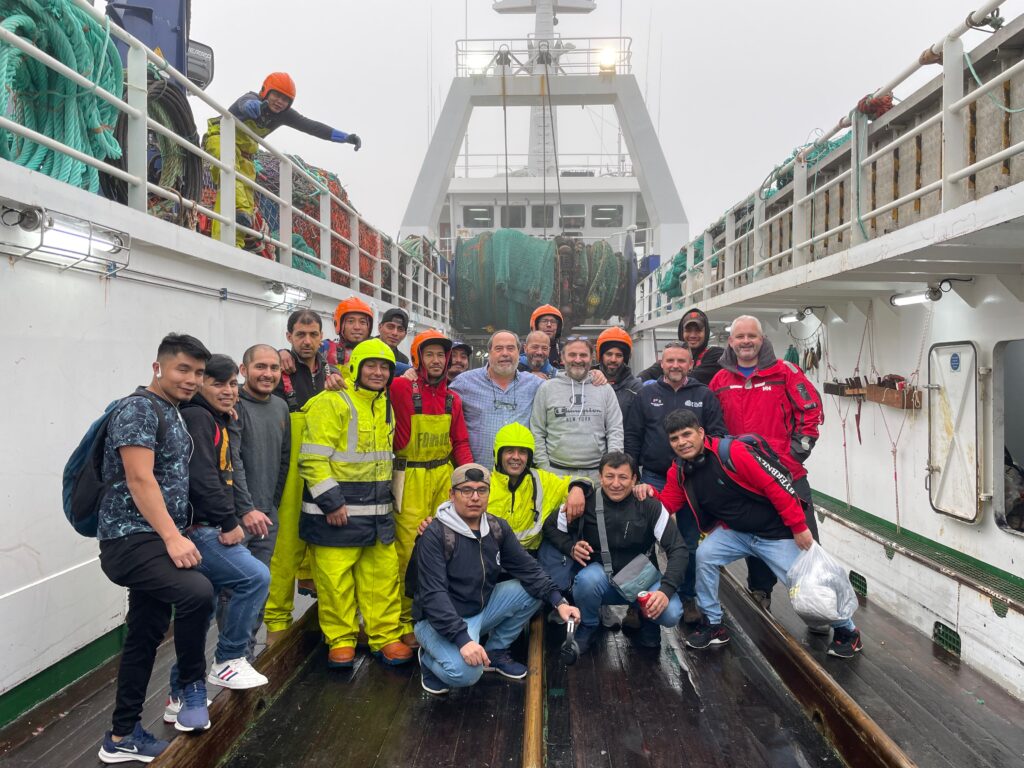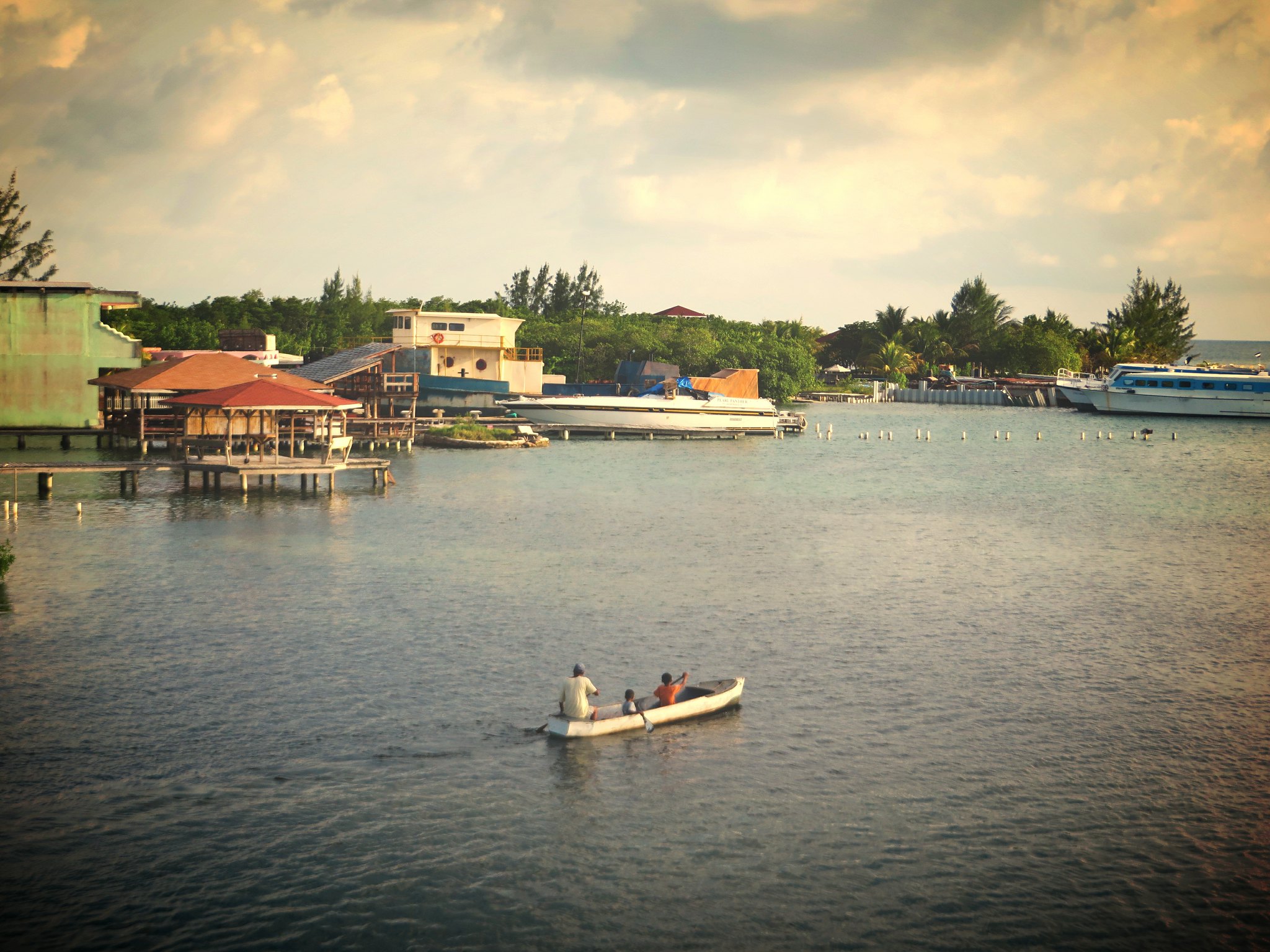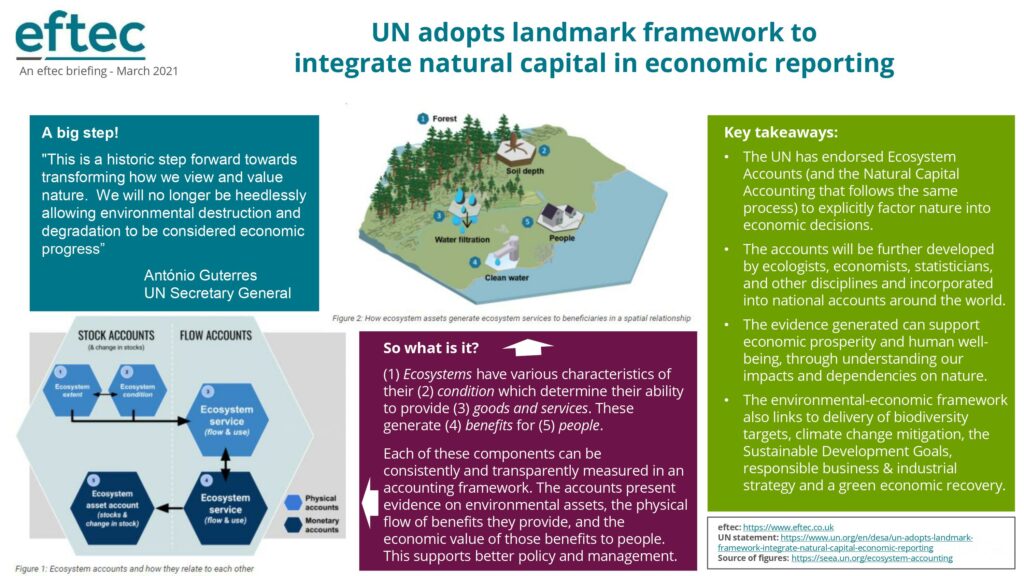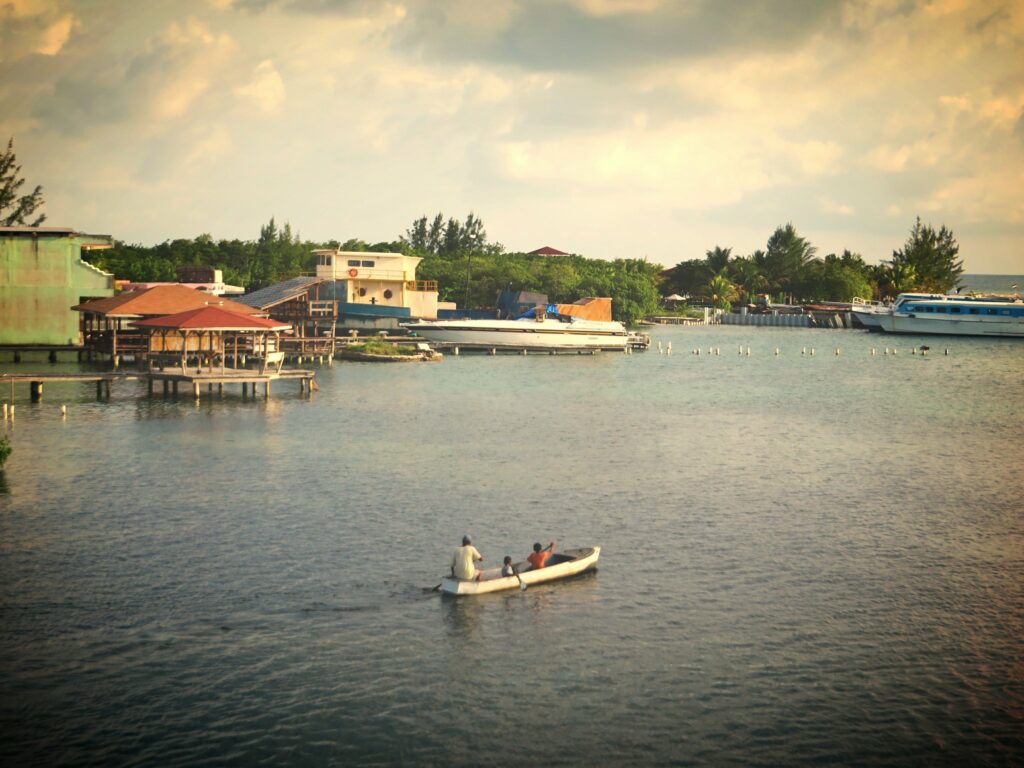A group of artisanal fishermen and women from La Polcura, in the Valparaíso region of Chile, have embarked on a unique adventure on the coasts of Caleta Chañaral de Aceituno, in the Atacama Region thanks to support from the Fishmongers’ Company’s Fisheries Charitable Trust’s Ocean Conservation Programme.
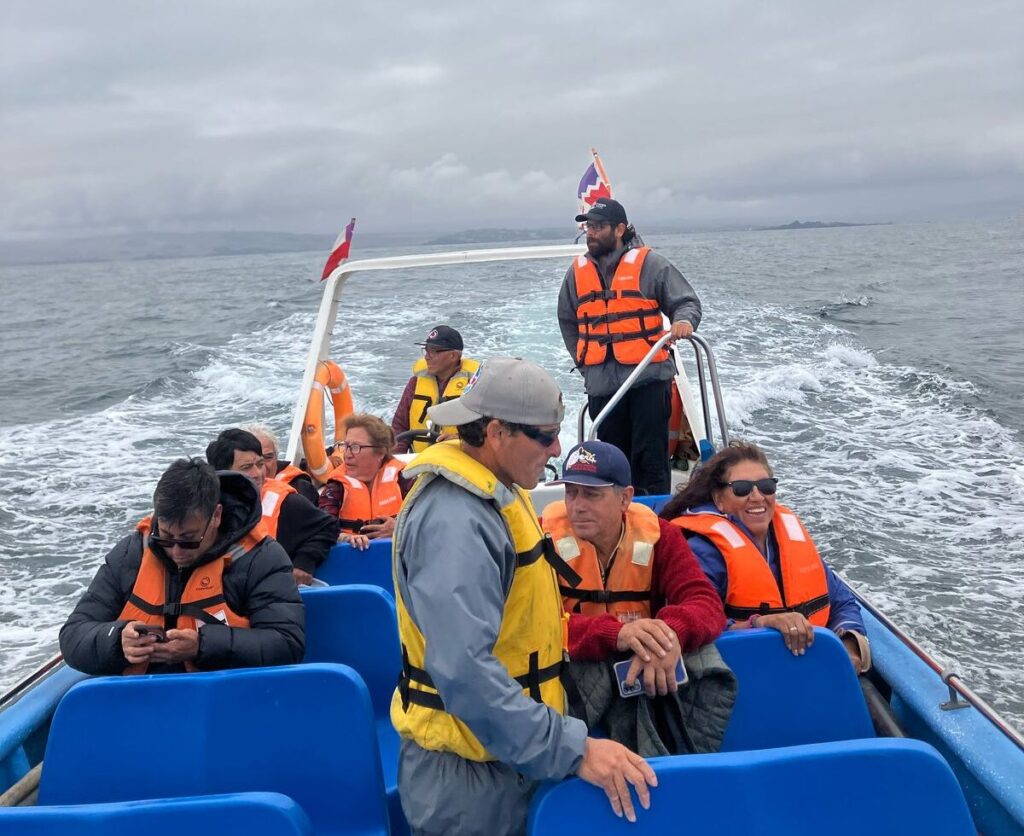
The objective? To explore new forms of productive development through tourism, linked to the incredible initiative they are carrying out with the creation of their own Marine Refuge together with the Capital Azul Foundation.
The experience began with a visit to the Roberto Álvarez museum exhibition hall, where they immersed themselves in the rich local culture of the Chango people and learned about the fascinating history of the construction of rafts from wolf skin. It was fascinating to imagine the skill and ingenuity needed to build a boat from these materials.
Then, together with local fishermen, they embarked on a circumnavigation of the “Isla Chañaral” Marine Reserve. And what a spectacle awaited them! Whales, sea lions, Humboldt penguins and various birds, a whole symphony of wildlife that left the group amazed.
This trip not only allowed them to discover the natural beauty of the area, but also to learn from the experience of the community of Caleta Chañaral de Aceituno, who have managed to develop a model of sustainable tourism that coexists in harmony with environmental conservation, elements that are often in tension.
The visit to Caleta Chañaral de Aceituno, will undoubtedly be an important milestone on the path of the La Polcura Trade Union towards productive diversification and sustainable development.
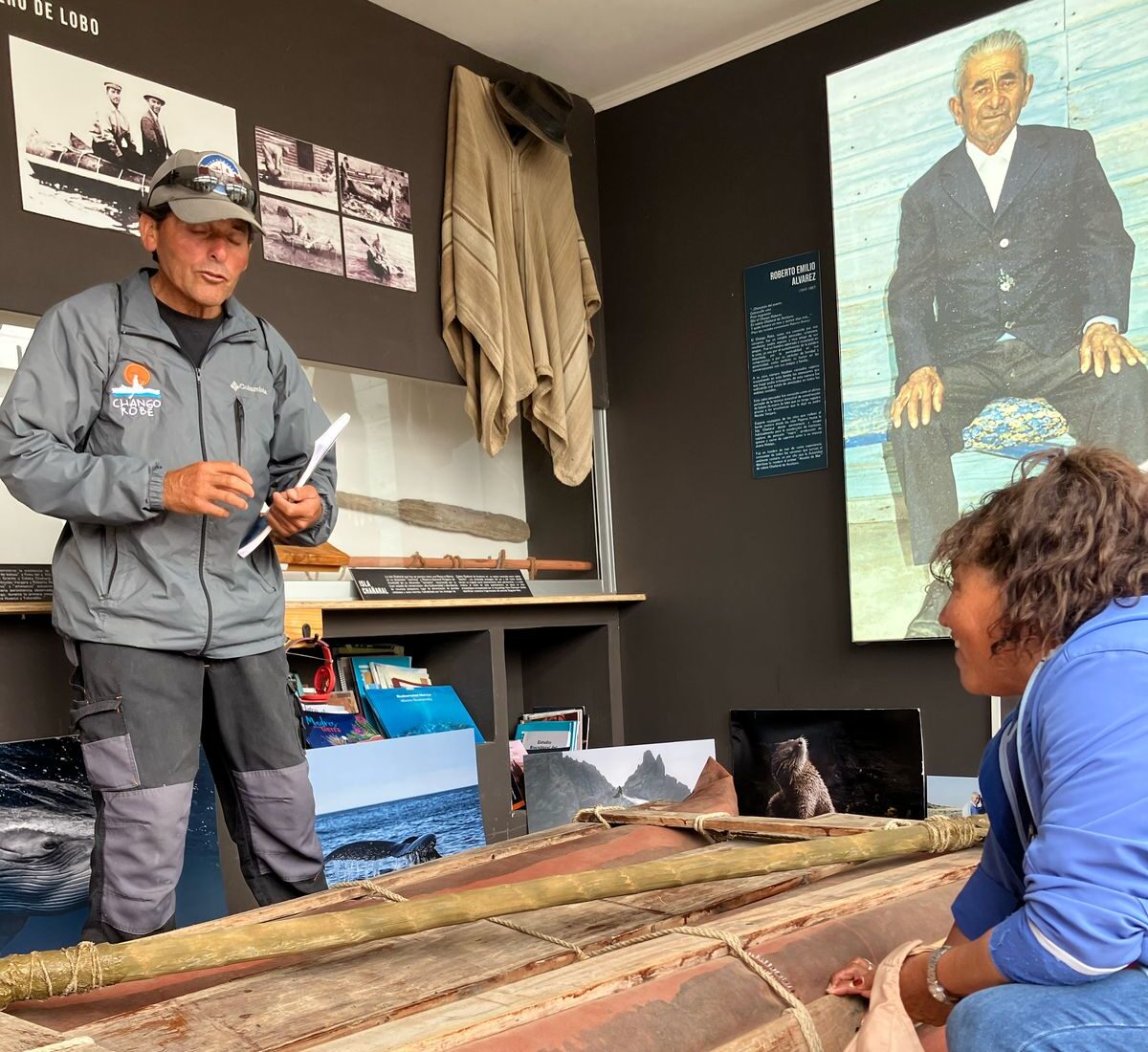
Why is it important to diversify production through tourism?
Artisanal fishing is a fundamental activity for the economy and culture of many coastal communities in Chile. This is the case of the La Polcura Union. However, the overexploitation of marine resources and climate change are threats that put their future at risk. In this context, and considering that this group has already created its own conservation space with the Marine Refuge, tourism is presented as a viable alternative to diversify production and generate new sources of income for the local community.
The La Polcura Marine Refuge: an example of sustainable development
The La Polcura Union, with the support of the Fundación Capital Azul, already has a Marine Refuge in its Management Area (an exclusive area of the union for extraction of benthic resources). By combining conservation zones within its extraction area, the aim is to protect marine biodiversity and promote sustainable artisanal fishing.
Thus, the Marine Refuge is not only a conservation space, but can also be a tourist and educational attraction that will allow visitors to discover the natural wealth of the area and learn about the importance of the efforts of the artisanal fishing sector.
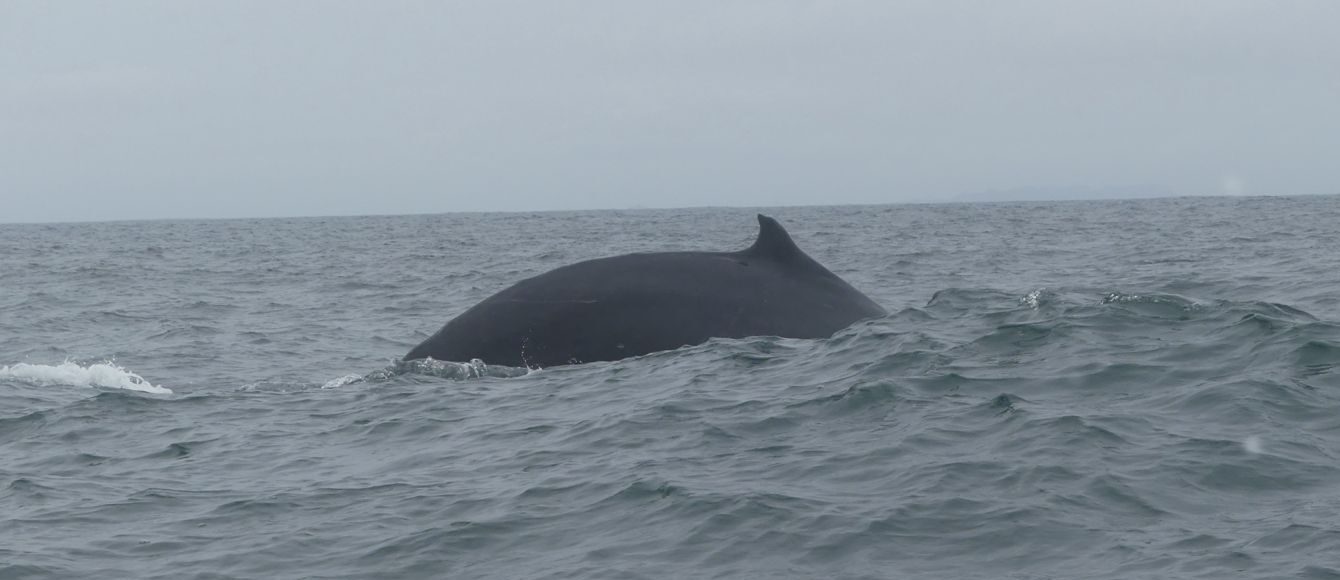
A hopeful future for artisanal fishing
The experience of the fishermen and women of La Polcura in Caleta Chañaral de Aceituno is an inspiring example of how productive diversification through tourism could be a key tool, among others, to strengthen artisanal fishing and build a sustainable future for the local community.

